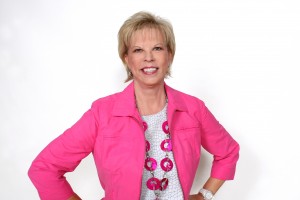 Q: What do you feel is the most significant part of Women’s History Month (WHM), which is honored during the month of March?
Q: What do you feel is the most significant part of Women’s History Month (WHM), which is honored during the month of March?
A: It makes me step back and realize where we have come in the past 92 years. On Aug. 26, 1920, women were given the right to vote. That was only 92 years ago. My own mother will be 91 in November, so relating this milestone to her age is a reality check for me. The legacy that these women who fought for this right leave with us is something we should think about every day. Every woman should go exercise her hard-won right to vote. Unfortunately, not every woman understands the power that she has at the voting booth. We have so much history to share — women getting elected to office, more females in board rooms, more women opening businesses, and more of us giving back to help those in the next generation. This is a historical time for us.
Q: How does the work of the IEEW reflect this significance?
A: Working in Afghanistan and Rwanda reminds us here at IEEW how important it is to empower women. Women in Rwanda now hold the most elective offices in their land! Afghanistan’s new constitution requires that 25 percent of the lower parliament be women! The United States only stands at 16.8 percent of the seats being held by women in the House of Representatives, and 17 percent in the Senate, according to the Center for American Women in Politics. Our significance and relevance is teaching our women business owners how important it is for them to be involved in public policy. We teach this every year and two of our graduates in Afghanistan have run for Parliament. Two of our women graduates in Rwanda have been appointed to the Parliament by President Kagame. We believe “if you run a business and you’re not involved in politics, then politics will run your business.”
Q: What can women business owners around the world learn from Women’s History Month?
A: They can learn the significance that history has had on our ability to succeed and prosper today, both as professionals and entrepreneurs. For example, the Afghans and Rwandans learn a great deal from each other in the PEACE THROUGH BUSINESS® program. Afghan women had never heard of Rwanda, so they learn of the genocide and how women have stepped up to help rebuild their country. The Rwandans learn how difficult it is for women in Afghanistan, compared to issues that Rwanda faces. Both countries are stunned when they learn that right here in the United States, women only got the right to vote 92 years ago—our numbers in Congress are lower than theirs, and more. The bottom line is that we all share very similar problems. It’s how we tackle them that counts. History can teach us a great deal on this.
Q: What can women biz owners domestically learn from this?
A: That while we are the trailblazers here, our knowledge must be passed on to war-torn countries so civil societies will emerge around the world. When civil societies emerge, peace is around the corner for all of us. As Americans, we should be proud of our young country. We are free to come and go as we please, to develop businesses, to drive, to demonstrate if we so choose, and paying forward our knowledge to others is our path to greater freedom.
Q: How do we keep the momentum and good feelings from WHM last long after March is over?
A: Our March (no pun intended) is a daily march forward. Every day is a day to empower women and men around the world – in small ways and in large ways. We teach our children to be freedom lovers, we teach our business owners to be freedom lovers. Bottom line: when you educate a woman, you educate a nation. And, that is a lesson that can last a lifetime.
Thank you Dr. Neese and Happy National Women’s History Month!
